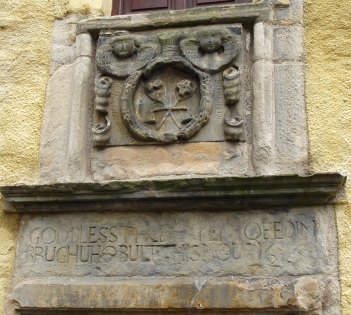History
Saint Andrew was, and still
is, the
Patron Saint of Scotland. He was the focus of attention for
thousands of medieval pilgrims who made their way to the town of St
Andrews in Fife. Why?
Two thousand years ago,
Andrew - one
of Christ’s apostles, was merely doing what he’d been told.
He
was spreading the Good News [Gospel]. The year 60 AD found him in
Greece, persuading two ladies to be baptised into the faith.
Unfortunately for Andrew, the husband of one lady disapproved, and he
was in a position to do something about it. He was the Roman
Governor of the province. Andrew was crucified on the familiar
X-shaped cross.
|

|
|
Our book, "The Saint
Andrew’s Way"
outlines theories of how Andrew’s relics got to St Andrews. To
the early church, relics were hugely important. The people changed
the name of the town and built a cathedral to house the relics. It
was made to impress: the largest building in medieval Scotland,
though the relics could have
fitted in the bottom of a
handbag! Our ancestors did the right thing by going to visit their
saint: to worship at his shrine; be cured; and to arrange to get to
Heaven as soon as might be. It was a money-spinner for the church -
wrecked by the reformation.
The pilgrimage was
re-invented to
celebrate the year 2000. The book’s author was on the organising
committee. It was such FUN that we’ve made a permanent route to
St Andrews to cater for modern pilgrims. Buy the book to find out
more!
|



